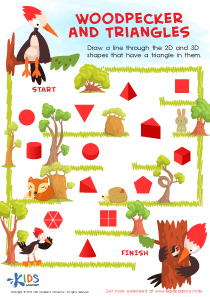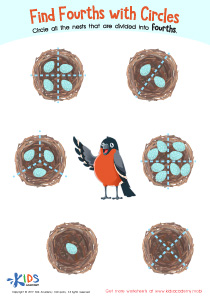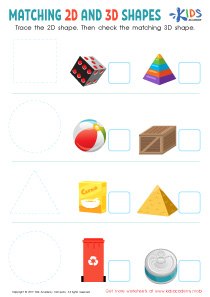Extra Challenge Area and Perimeter Worksheets for Ages 5-9
5 filtered results
-
From - To
Discover our Extra Challenge Area and Perimeter Worksheets designed for children aged 5-9! These engaging worksheets provide an exciting way for young learners to dive deeper into the concepts of area and perimeter while enhancing their math skills. Perfect for both classroom and home use, these extra challenge activities support critical thinking by encouraging kids to solve various problems creatively. With vibrant illustrations and clear instructions, our worksheets captivate young minds and cultivate a love for learning. Whether you're a teacher or a parent, these resources are sure to make math practice both fun and rewarding! Download now and watch confidence grow!
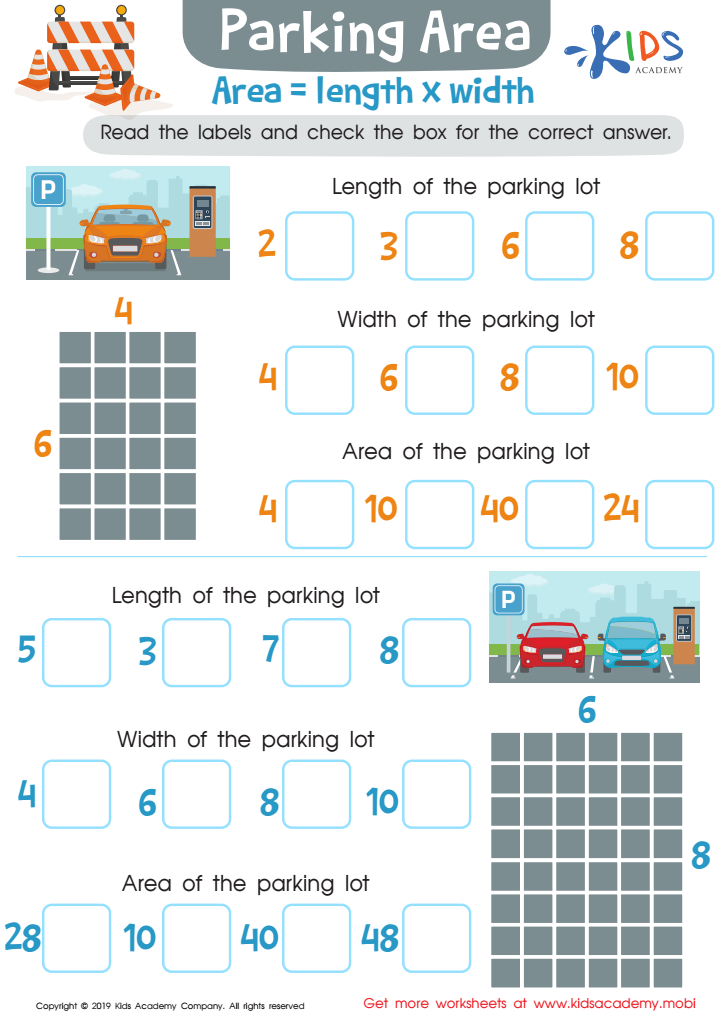

Parking Area Worksheet
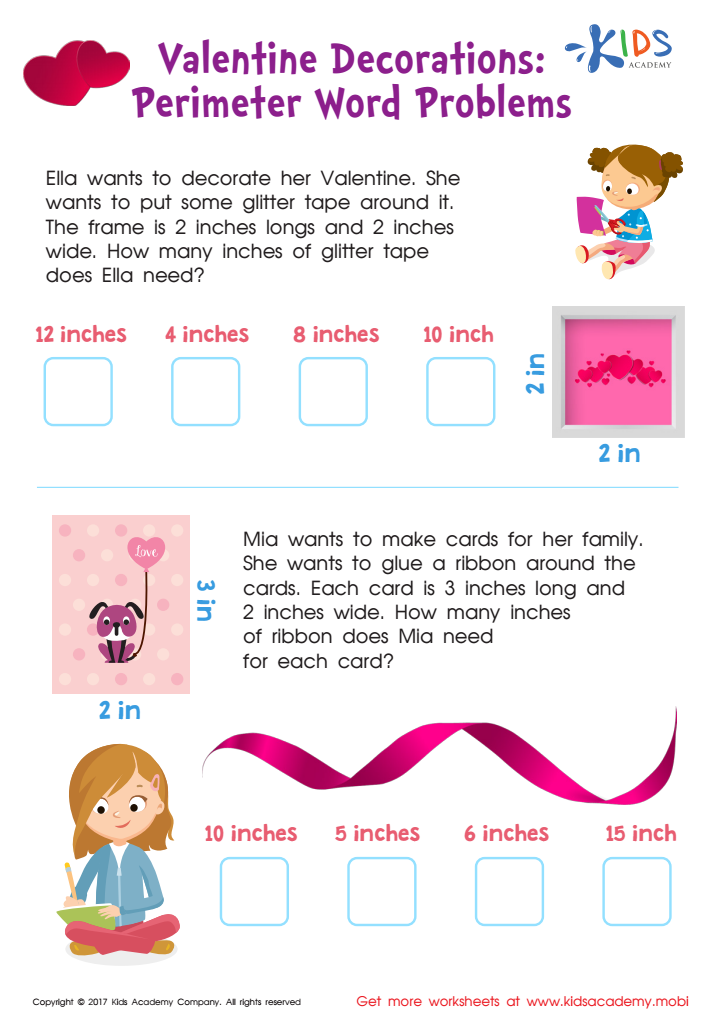

Perimeter Word Problems Worksheet
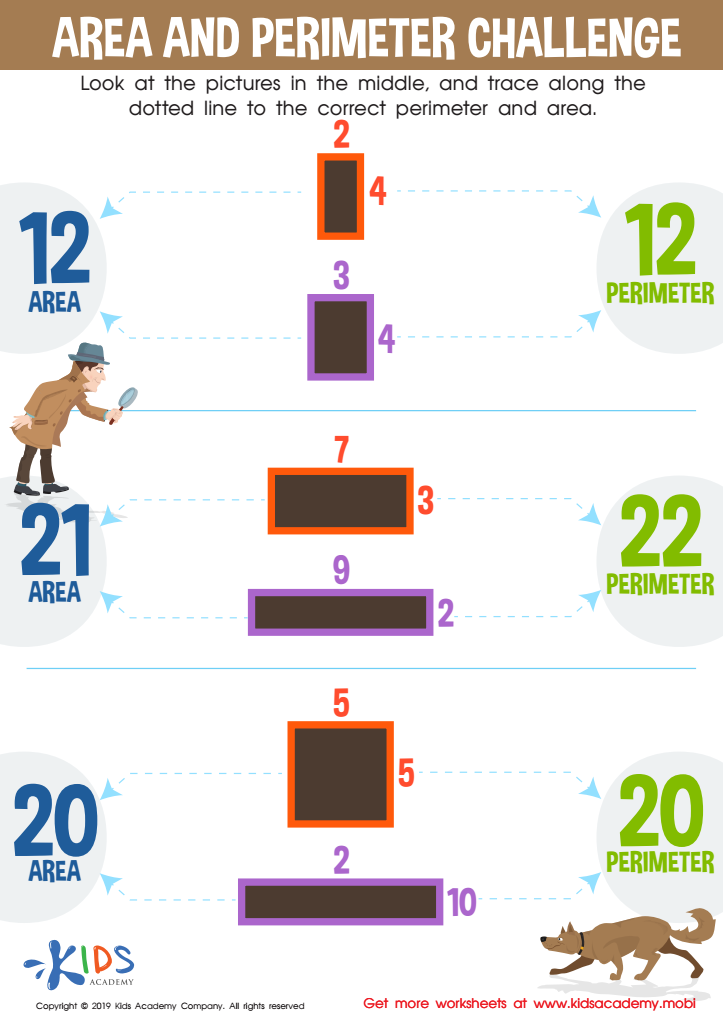

Area and Perimeter Challenge Worksheet
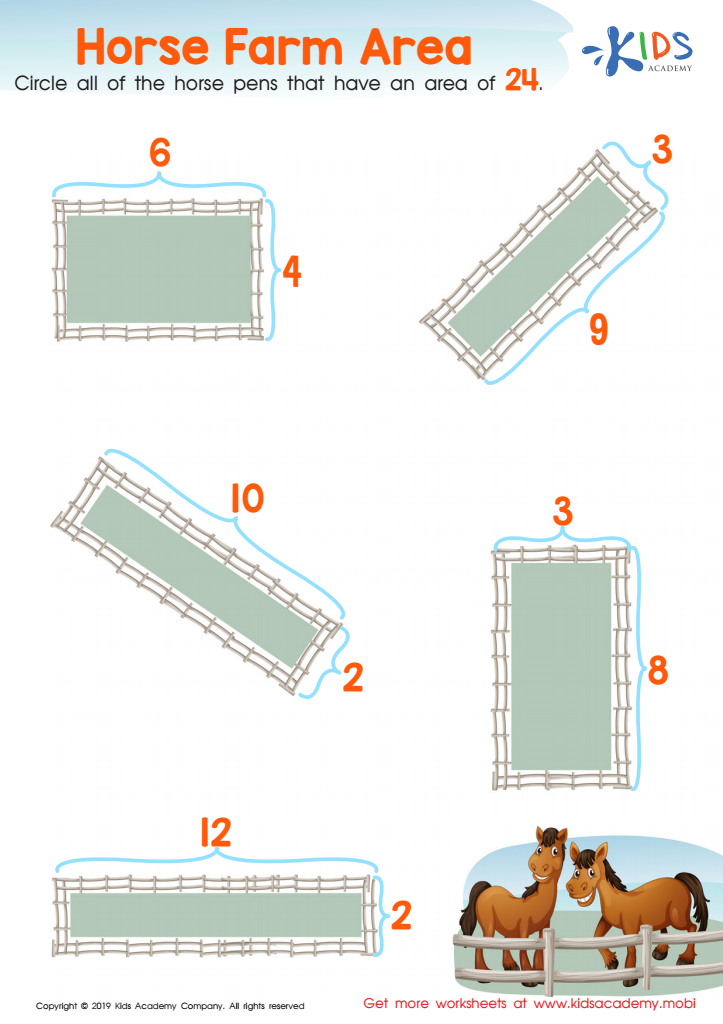

Horse Farm Area Worksheet
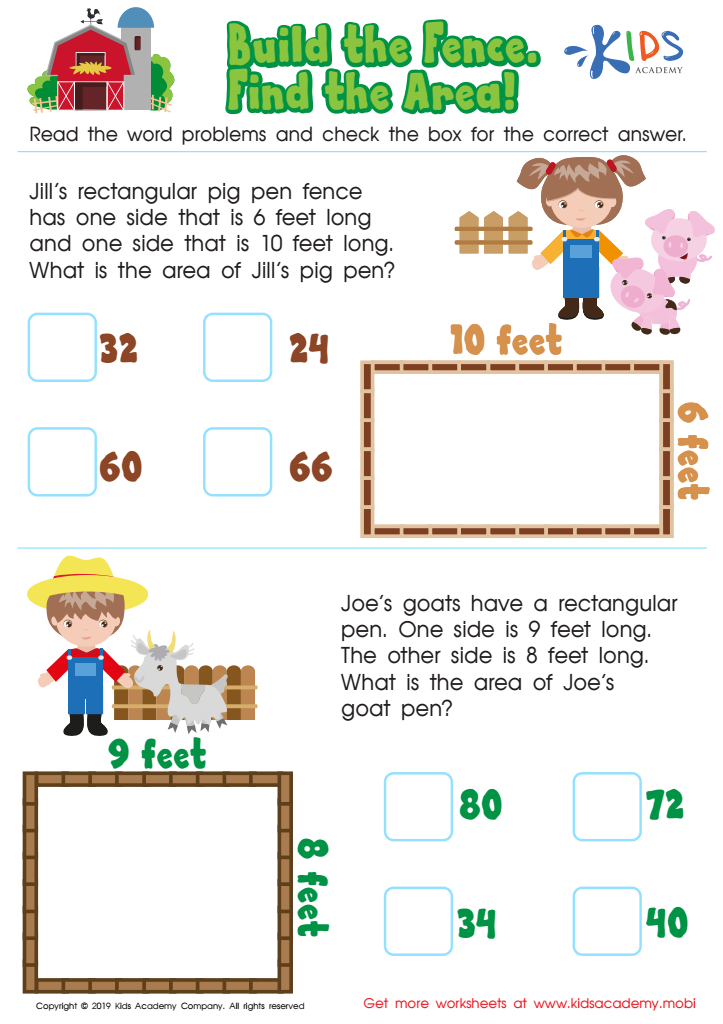

Build the Fence, Find the Area Worksheet
The Extra Challenge Area and Perimeter for ages 5-9 is vital for fostering a strong foundational understanding of essential mathematical concepts. At this developmental stage, children are curious and eager to learn; thus, introducing advanced topics, like area and perimeter, can enhance their problem-solving skills and boost their confidence in mathematics.
Understanding area and perimeter goes beyond classroom learning; it introduces real-world applications. For example, when children measure the area of a garden or calculate the perimeter of a play area, they engage in practical activities that encourage critical thinking and creativity. This hands-on experience allows them to apply mathematical concepts alongside varying perspectives, cultivating reasoning skills.
Moreover, the early introduction of these concepts prepares children for future academic challenges. By stimulating their interest in geometry and measurement, parents and teachers lay the groundwork for subjects such as science, architecture, and engineering later in life. A strong mathematical foundation not only fosters academic success but also equips kids with skills necessary for everyday tasks, such as managing space and arrangements in daily life.
Ultimately, engaging children in Extra Challenge activities around area and perimeter aids their overall cognitive development, setting the stage for lifelong learning and enthusiasm for mathematics.
 Assign to My Students
Assign to My Students













